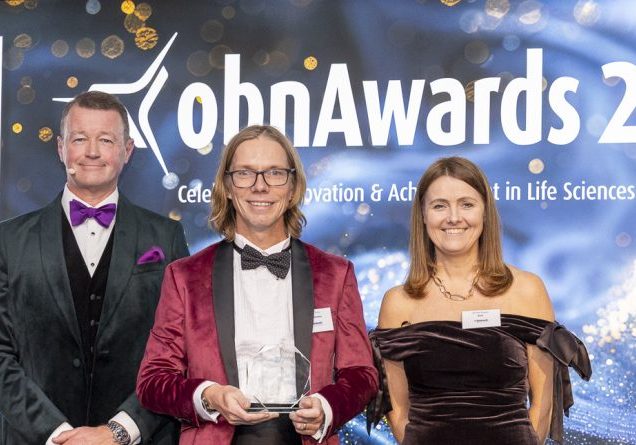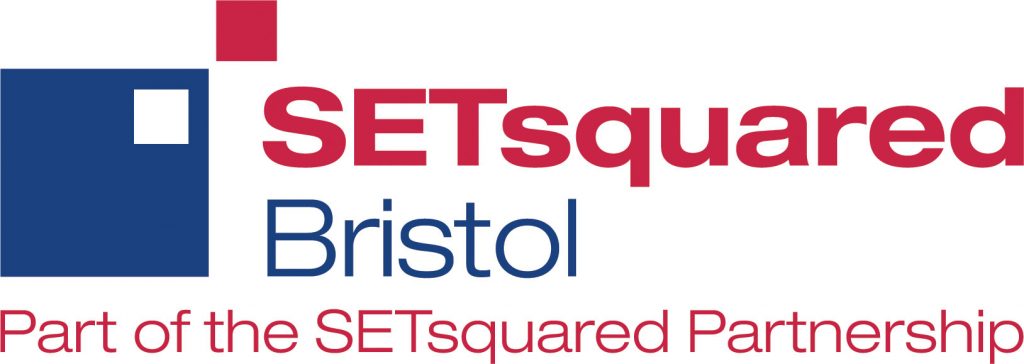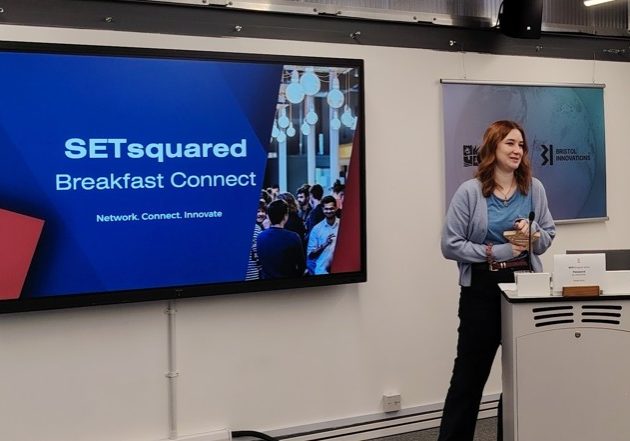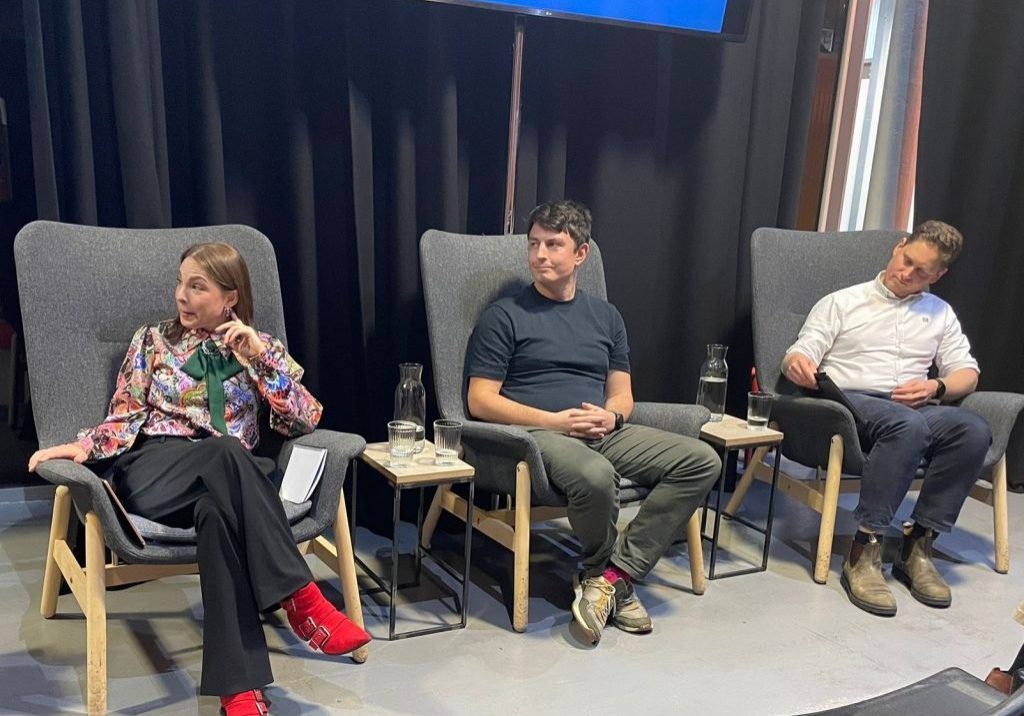Startup advice from Kevin Simmons, Entrepreneur in Residence
Posted by
SETsquared Bristol
As part of our startup advice series with our Entrepreneurs in Residence (EiRs), we had a chat with the newest member of the team, Kevin Simmons, to hear his top tips for founders and startups.
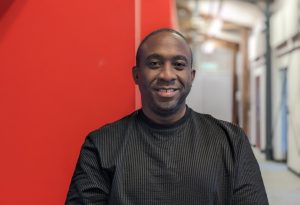 Tell us a bit about yourself including any hidden talents?
Tell us a bit about yourself including any hidden talents?
My strongest dislike in life is ‘tell me about yourself’ questions. Lol. I am a deep feeler who does not often understand what I am feeling but I feel my various moods deeply, so I am on an evolving journey to understand what drives me and makes me better, or worse. I had a great first career in the global oil and gas industry where I made some lifelong friends. I love teaching and encouraging, so I found my way to helping founders build better companies than I was able to myself. In terms of hidden talents – I love to travel and think of it as a talent given how painful most travel is these days. I love watching sports but hate my teams or favorite athletes to lose so this is a painful hobby frankly. Perhaps the most hidden thing about me is I love to cook. It relaxes me and I can go into a great headspace and solve big problems while I am cooking.
In what ways does your own professional background help you to advise companies?
I have had a very varied professional career from working as an engineer in the largest corporate setting and industry where I was a buyer of services and products from smaller technology companies; to working in the smallest startups trying to get a solution to come to life; to then evaluating and investing in literally hundreds of startup companies. I believe that the 360-degree view I have from sitting on all sides of the table as a customer, operator and investor is helpful when I am advising companies because I try to share the various perspectives and experiences of different stakeholders that matter for the companies I advise.
“The best business leaders, and really the best leaders overall, are great learners. They are constantly listening and paying attention to the information that is most relevant to their business.”
What characteristics make a great business leader?
The best business leaders, and really the best leaders overall, are great learners. They are constantly listening and paying attention to the information that is most relevant to their business – from the market, from their employees, from their customers, from their competition. They drink it all in and have an uncanny ability to assimilate and learn it all.
I have also found that the great business leaders I know have a unique mix – they are humble and confident at the same time. This humble confidence, or confident humility, is so important as it guides them to take bold risks at the right times, but also to be prudent and cautious at other times – great leaders seem to get more of those calls right most of the time.
“Intense execution bias is the rarest and most important skill a founder can have. I am strongly in the school that believes that execution eats strategy for lunch.”
What are the most important skills that a startup founder should learn?
There are so many skills that are important and are generally found in successful startup founders, but I will highlight three that I always find to be the difference makers:
1. Decision making. I am bit biased perhaps as this is a skill that investors really treasure. At the end of the day, all you are buying when you invest in a founder is the entire cumulative set of decisions they make. Everything from who to hire, when to fire, what markets to enter, how to price and market their product. The list is endless. A startup founder will make dozens of critical decisions each day and the good founders are great at making quality decisions and surround themselves with people who can really help them make great decisions – those companies never seem to be in crisis.
2. Intense execution bias. This is the rarest and most important skill a founder can have. I am strongly in the school that believes that execution eats strategy for lunch. In my third startup adventure, building an accommodation sharing platform to take on Airbnb (that is a story for another article), the founder was an absolute execution guru, and we were able to achieve amazing results where others had failed. The founders that can literally put plans into practice in the most direct and efficient ways always learn the most and the fastest. That is the value of an intense execution bias – you quickly learn how to succeed and you get to that success faster in most cases.
3. I am always impressed by founders who can be laser focused on the highest impact activities amid all the chaos that is part of building a startup. It is so easy to be distracted by needs and emergencies that do not really affect your ultimate success, or to believe you must work on something that does not truly move the needle. It is almost impossible to sort the various priorities that founders face, but it is such an important skill to be able to focus on the handful of things that truly matter in the face of all the noise.
“My top advice is to fall in love with your customers and have a deep relationship with them. The sad reality though is I often see entrepreneurs that miss this truism, and they spend more time speaking to people like me, investors, than to customers.”
Could you share your top piece of advice for entrepreneurs?
My top advice is to fall in love with your customers and have a deep relationship with them. There is no better source for information, inspiration or insight than your potential customers. I can only think of a few scenarios where a startup team would not be better off by doing more and deeper work with their customers as they are building their business. The sad reality thoughis I often see entrepreneurs that miss this truism, and they spend more time speaking to people like me, investors, than to customers. As an investor, I can immediately tell when startups have that balance backwards and spend too much time talking to investors when they would be better off speaking to their customers to get to know them deeply. .
Why should startups consider joining an incubator?
A good incubator is like a really great supermarket. If it is well stocked and has high quality products, then it is an absolutely great place to get what you need when preparing an amazing meal. There is no doubt that you can shop around and get a better cut of meat from a specific butchers, and you can wait in line for better bread from the bakery across town, and so forth but if you have a narrow window of time, it can really make sense to get the advice, knowledge, support, mentorship, coaching and network in one place. A good business incubator would provide much, and hopefully, all of what you need. To me, that is the value of a good business incubator and I have been through many of them when I was building my startups.
What tech trends can we expect to see in the next five years?
I love thinking about trends and usually get them quite wrong, but I love the work that futurists do – it’s exciting to think about. It is hard to speak about technology trends over the next five years and not speak about artificial intelligence (AI), and probably the continued entry of augmented reality (AR) into the workplace and our lives – things like increasing cyber security, machine learning, and even the internet of things having a resurgence to some extent. But the one trend that I am looking forward to the most is a small emerging space that I believe has the potential to be richly rewarding for humanity: the intersection of emotion and technology. It is probably too early to call this a trend as it is really nascent, but as a technologist I am excited by the prospect of combining the richness of human emotional experience with technology to improve how people interact and feel relative to each other.
More information:
Enterpreneurs in Residence are a core benefit of the SETsquared Bristol incubation programme. They provide our companies with expert advice, recommendations and network contacts, drawn from their own entrepreneurial backgrounds and specialist experience.
Find out about joining our incubation programmes.
Recent News, Blogs and Stories
